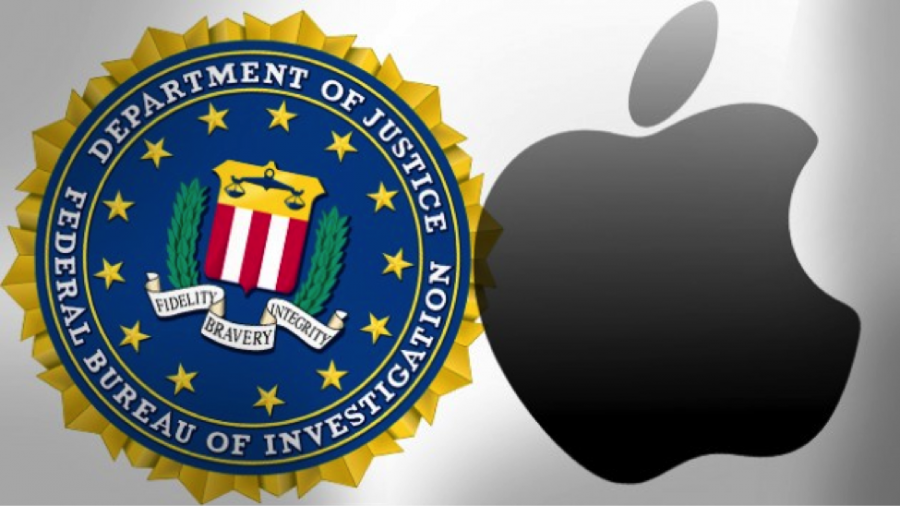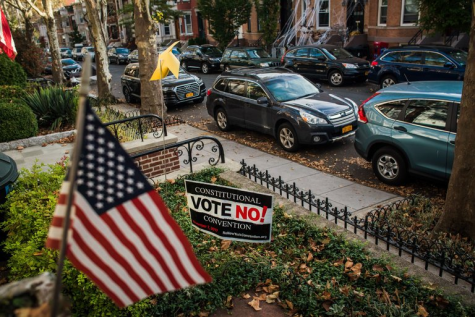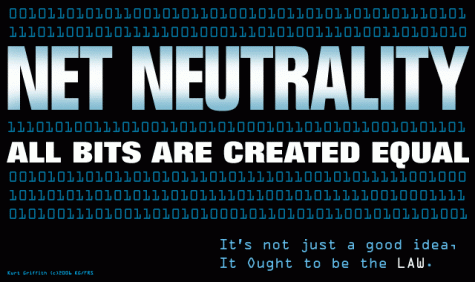Encyrption Wars: Apple vs. the FBI
On February 16, Apple CEO Tim Cook released a message to Apple Inc.’s customers. This message, posted on Apple’s official website, details that Apple is opposing an order the United States government has given the company, stating that this order “threatens the security of our customers.” Apple stands on the ground that as smartphones have become an essential part of people’s lives, people’s personal information must be protected from hackers and criminals who may use this information for malicious purposes. The FBI’s order would compromise people’s personal safety and security of information Apple has worked so hard at encrypting and keeping inaccessible to the point where even the company cannot access their customer’s information.
While many would applaud Apple for its value of privacy and encryption of information, the FBI views this encryption as a potential threat to many people. The issue arose after the San Bernardino Attack on December 2, 2015, when the FBI wanted to access the information within the phone used by those involved in the shooting. This phone was an iPhone 5C. The iPhone is designed with security features that prevent external access, such as wiping the phone of all data after the passcode is entered incorrectly ten times.
Simply put, the FBI has ordered Apple to create a backdoor to the iPhone, an order they deem too dangerous to create as it would put its customers’ information at risk and violate their stance on privacy. The FBI is demanding Apple to create a new version of iOS (operating system for Apple mobile devices) that would not have the security measures or encryption that previous versions of iOS had.
The FBI cannot access the information from the phone retrieved from the San Bernardino attack due to Apple’s encryption. Not only that, but also ten failed attempts of the passcode will wipe the phone of all the information it contains, potentially losing critical information that the FBI can use to investigate information and events leading up to San Bernardino. The operating system currently has no way of allowing passcodes to be input electronically, making it nearly impossible for the FBI to access the iPhone’s information.
Apple states that the FBI’s request to create an operating system that allows electronic input of passcodes and removing the feature that wipes the phone after ten wrong inputs would render every iPhone vulnerable and open for hacking. Complying with the FBI would make an iPhone accessible through “brute force,” and any iPhone can be hacked using thousands to millions of combinations of numbers that can be created with the speed of any modern computer.
The FBI is invoking the All Writs Act, a short statute that gives federal courts the power to “issue all writs necessary or appropriate in aid of their respective jurisdictions and agreeable to the usages and principles of law.” However, Apple states that the act (which is from 1789) being invoked would give the government the power to access and capture anyone’s data.
Apple fears that if they let the government breach people’s privacy simply through lessened security measures, they could potentially demand more changes in the company’s operating system and encryption methods such as demanding surveillance software (reading customers’ text messages, financial data, health, location, turning on the microphone or camera at random) that would further breach the privacy of the consumers.
Apple believes that the FBI has good intentions, but they feel that this demand for creating a phone that is more vulnerable to hacking or accessing its data undermines the fundamental freedoms and liberties that the United States government stands for. On March 1, the House Judiciary Committee announced that it will be holding a congressional hearing on encryption called, “The Encryption Tightrope: Balancing Americans’ Security and Privacy.” Undoubtedly, this hearing will be a fundamental point in the ongoing fight between Apple Inc. and the U.S. Government and FBI regarding digital privacy and encryption.









